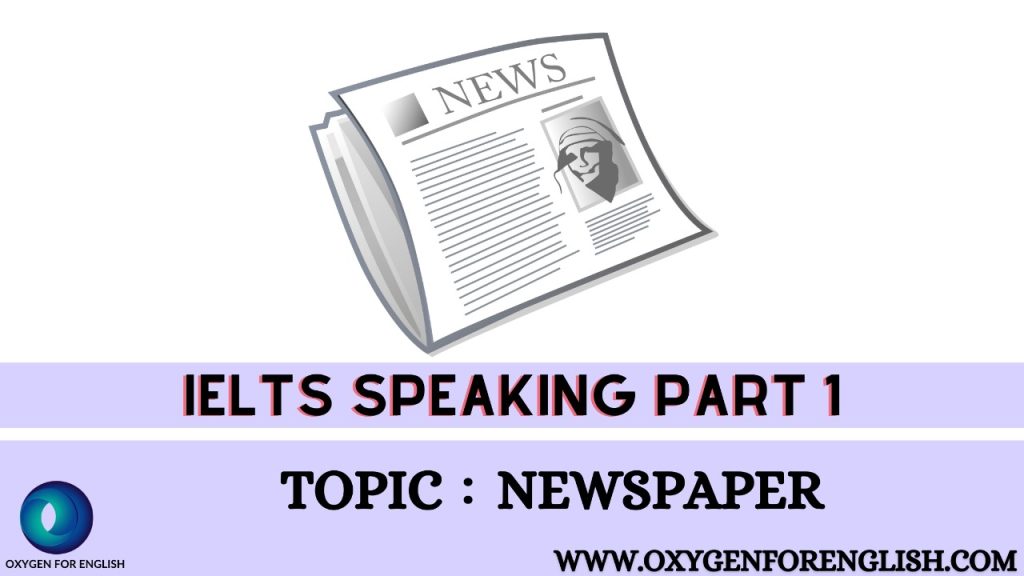IELTS speaking part 1 sample questions and answers: Topic: Newspaper
Content of the post
- The article contains sample questions and answers for IELTS speaking part 1 topic newspaper.
- It also contains the band 7+ word used in this topic plus words useful for the topic.
- Further the article contains the links of cue card related to topic newspaper and part 3 sample questions and answer related to newspaper.
IELTS speaking part 1 sample questions.
Topic: Newspaper
- Do you read any newspaper? Why?
- Which is your favorite newspaper? Why?
- Do you read a newspaper in other languages too?
- Do you think reading a newspaper is a good way to learn a language?
- What other benefits do we get?
- What is the difference between newspaper and a magazine?
- What do you usually read in the newspaper?
IELTS speaking part 1 sample questions and answers: Topic: Newspaper
Do you read any newspaper? Why?
As a part of my hobby, I read newspapers regularly because it keeps me updated and makes me aware with current affairs. I read newspaper in my mother tongue mostly, but I also like English newspapers like times of India and HINDI newspapers such Navbharat times.
Which is your favorite newspaper? Why?
My favorite newspaper is Gujarat Samachar. It is published in my mother tongue. It covers news in the locally and nationally as well. Important international news is also published regularly in the newspapers.
Gujarat Samachar tries to cover each and every field like social issue, politics and sports. It has special edition in sports and movies. It is authentic and reliable source it never compromises in the ethics of the newspapers.
Do you read a newspaper in other languages too?
Yes, I read “The times of India.” It is in English language. It is an authentic and reliable source of Information. It is also a good source of improving the skill and knowledge in English.
It publishes special edition where prominent writers write columns. These columns contain thoughts of the writes on different subjects like politics, social issues or science. They are very good source for improving your knowledge of English as well as vocabulary.
Do you think reading a newspaper is a good way to learn a language?
Yes, reading a newspaper can be very useful to learn a language specifically the language which is not your mother tongue. Newspaper includes wide variety of topics on several issues which improve person’s skill on producing language.
It contains numerous words on different topics which improve vocabulary needed to speak and write a particular language.
What other benefits do we get?
There are certain other benefits we could also get by reading a newspaper. First is current awareness. New paper provides up to date information on current happening on different areas like politics and economy. It also provides the information on local to global happening.
If you are reading a newspaper in other language than your mother tongue you can lean lots of fact about other culture.
What is the difference between newspaper and a magazine?
The first difference between newspaper and magazines is the frequency of publishing. . Newspapers are generally published on daily basis. Whereas magazines are published weekly, or monthly basis.
The newspaper mainly focuses on providing facts and information. However, magazines’ aim can be informative or entertainment. Magazines like India today and national geographic are informative. Whereas magazines like famine are purely entertaining.
What do you usually read in the newspaper?
I like sports section much because I am interested in sports. Sports section contains latest news on sports like football, cricket and hockey. Interviews and opinions of famous cricketers are also published in this section which is very interesting to read. I also read different supplements in the newspaper.
Vocabulary: IELTS speaking part 1: topic newspaper
Authentic: genuine
Reliable: trusted
Ethics: moral principles
Numerous: many

